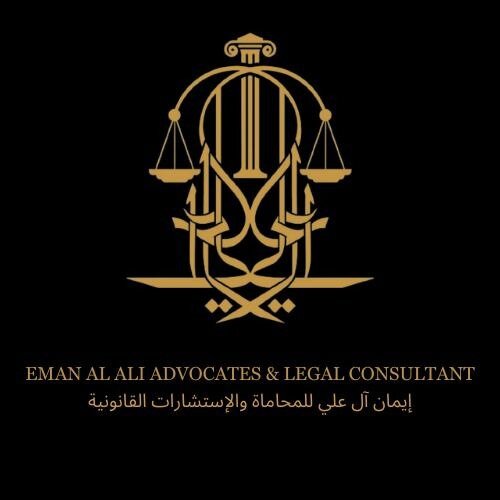Best Antitrust Litigation Lawyers in United Arab Emirates
Share your needs with us, get contacted by law firms.
Free. Takes 2 min.
Or refine your search by selecting a city:
List of the best lawyers in United Arab Emirates

Mohamed Eid Al Suwaidi Advocates & Legal Consultants
30 minutes Free ConsultationAbout Antitrust Litigation Law in United Arab Emirates
Antitrust litigation law in the United Arab Emirates addresses issues related to anti-competitive practices and the promotion of fair competition within the UAE’s market. The UAE has implemented robust legal frameworks to regulate business conduct, ensure consumer welfare, and prevent practices like price fixing, monopolies, cartels, and abuse of dominant market positions. The primary legal source is Federal Law No. 4 of 2012 on the Regulation of Competition, which is enforced and overseen by various governmental authorities. Disputes and violations involving antitrust and competition matters may lead to corrective actions, penalties, and litigation in local courts.
Why You May Need a Lawyer
There are several scenarios where individuals or businesses might require assistance from an antitrust lawyer in the UAE:
- Your company is being investigated for alleged anti-competitive activities.
- You are accused of price fixing or participating in a cartel arrangement.
- You are concerned that another business is abusing its dominant market position to harm your business.
- You want to ensure your merger or acquisition complies with competition regulations.
- You are facing significant fines or sanctions related to antitrust laws.
- You wish to lodge a complaint against a competitor for unfair market practices.
- You seek guidance on structuring commercial agreements or collaborations to avoid breaching competition laws.
Local Laws Overview
The key law governing antitrust and competition in the UAE is Federal Law No. 4 of 2012 on the Regulation of Competition, along with its executive regulations and related ministerial decisions. This legislation applies to most undertakings and commercial activities within the country, except for certain exempted sectors like telecommunications, financial services, and government-owned entities.
The law prohibits:
- Agreements or practices that restrict competition or create cartels
- Any abuse of a dominant market position that negatively affects commercial or consumer interests
- Economic concentrations (such as mergers or acquisitions) that may adversely impact competition, unless prior approval has been granted by the competent authority
Violations can lead to administrative fines, corrective actions, and court proceedings. The Ministry of Economy is primarily responsible for enforcement, investigation, and oversight of competition law in the UAE.
Frequently Asked Questions
What constitutes anti-competitive behavior under UAE law?
Anti-competitive behavior includes activities like price fixing, market sharing, bid rigging, and agreements that restrict competition. Abuse of dominant position, such as imposing unfair prices or refusing to supply goods or services, is also prohibited.
Which businesses are subject to UAE competition laws?
Most businesses operating within the UAE, including foreign enterprises with economic activity in the country, must comply with competition laws except those in exempted sectors like oil and gas, utilities, and some government-controlled companies.
What are the penalties for breaching competition laws in the UAE?
Penalties can include substantial fines, corrective or remedial actions, orders to cease certain conduct, and, in serious cases, potential suspension or closure of the business.
What government body enforces antitrust laws in the UAE?
The Ministry of Economy primarily enforces antitrust and competition laws. It has the power to investigate suspected violations, issue fines, and refer serious cases to the courts.
Can companies obtain exemptions from antitrust law requirements?
Yes, in certain circumstances, the Ministry of Economy may grant exemptions if it is demonstrated that an agreement or practice significantly contributes to economic development or enhances consumer welfare without harming competition.
How do I file a complaint about anti-competitive practices?
You can submit a formal complaint to the Ministry of Economy, providing detailed evidence of the alleged anti-competitive conduct. The Ministry will review and determine if an investigation is warranted.
Is there a process for reviewing mergers and acquisitions?
Yes, mergers and acquisitions that may lead to a significant concentration in the market are subject to prior approval by the Ministry of Economy. Notification and clearance are required if specific turnover or market share thresholds are met.
Are there special rules for joint ventures and collaborations?
Joint ventures and collaborations must not restrict competition or create anti-competitive effects. Legal advice should be sought to ensure such arrangements comply with UAE competition laws.
Do UAE antitrust laws apply to e-commerce and online markets?
Yes, competition laws apply to e-commerce platforms and digital market participants operating within the UAE. Anti-competitive online practices face the same scrutiny as traditional market dealings.
What should I do if I am under investigation for antitrust violations?
Seek immediate legal counsel. A specialized antitrust lawyer can help you respond to investigations, minimize liability, and protect your business interests throughout the legal process.
Additional Resources
- Ministry of Economy - Competition Department: Main government body for enforcement and information
- Local Chambers of Commerce: Offer business compliance resources and guidance
- Legal consultancy firms specializing in competition and antitrust law
- UAE Courts: For litigation and enforcement of judgments
Next Steps
If you require legal assistance in antitrust litigation in the UAE, start by gathering all relevant documents and information concerning your case or inquiry. Contact a reputable legal professional or law firm specializing in antitrust and competition law for a confidential assessment. They can review your circumstances, advise on the best course of action, represent you in communications with authorities, and defend your rights in the event of litigation or investigations. Early consultation with a legal expert helps ensure compliance and the effective management of any potential risks or disputes.
Lawzana helps you find the best lawyers and law firms in United Arab Emirates through a curated and pre-screened list of qualified legal professionals. Our platform offers rankings and detailed profiles of attorneys and law firms, allowing you to compare based on practice areas, including Antitrust Litigation, experience, and client feedback.
Each profile includes a description of the firm's areas of practice, client reviews, team members and partners, year of establishment, spoken languages, office locations, contact information, social media presence, and any published articles or resources. Most firms on our platform speak English and are experienced in both local and international legal matters.
Get a quote from top-rated law firms in United Arab Emirates — quickly, securely, and without unnecessary hassle.
Disclaimer:
The information provided on this page is for general informational purposes only and does not constitute legal advice. While we strive to ensure the accuracy and relevance of the content, legal information may change over time, and interpretations of the law can vary. You should always consult with a qualified legal professional for advice specific to your situation.
We disclaim all liability for actions taken or not taken based on the content of this page. If you believe any information is incorrect or outdated, please contact us, and we will review and update it where appropriate.
Browse antitrust litigation law firms by city in United Arab Emirates
Refine your search by selecting a city.















